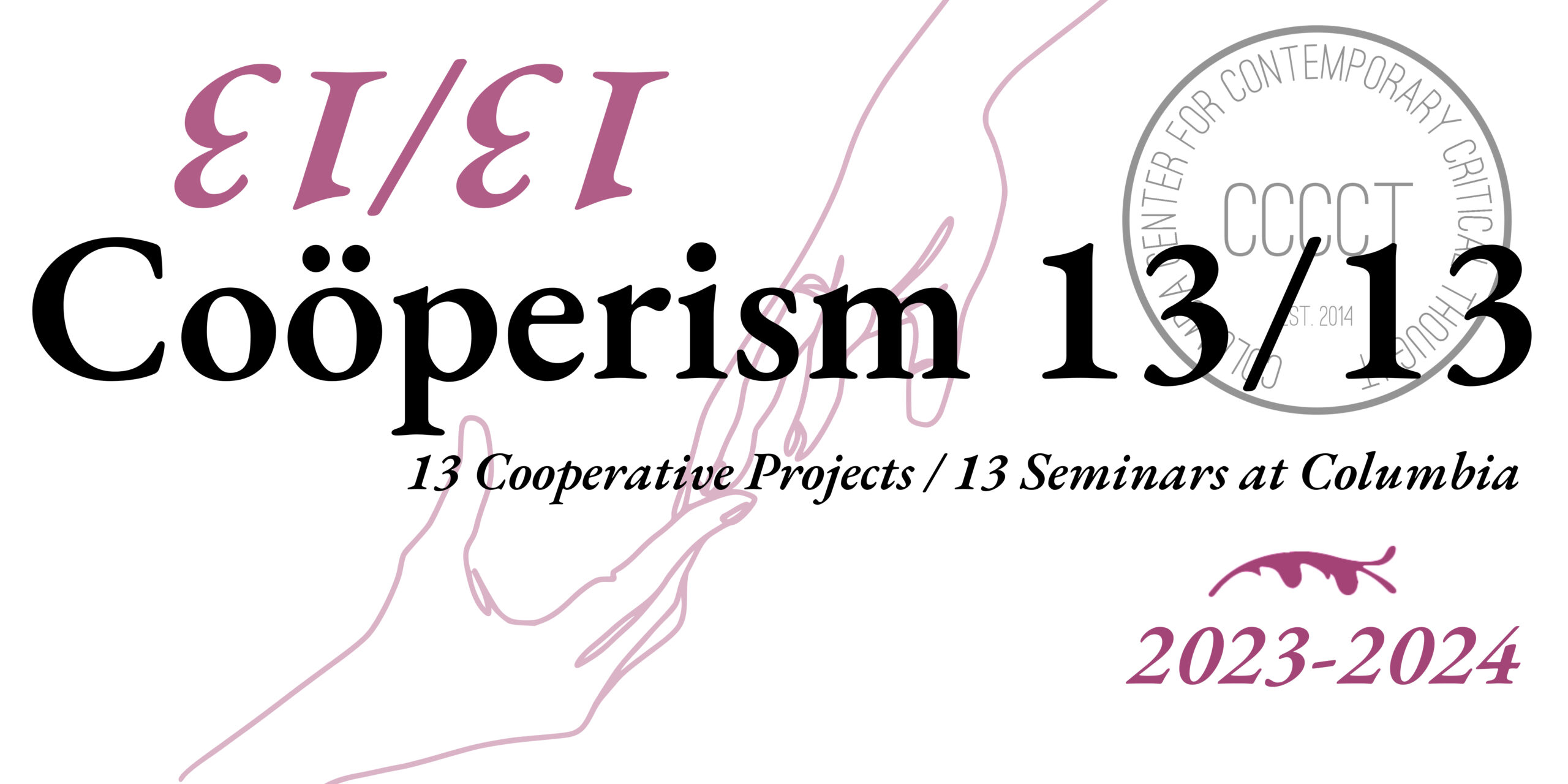By Bernard E. Harcourt
Welcome to Coöperism 12/13!
It is an honor and privilege to welcome Axel Honneth to our public seminar on cooperation this evening. Professor Honneth joins us to discuss his ongoing research and forthcoming book on the matter of the democratization of the workplace. The forthcoming book is titled The Working Sovereign: Labor and Democratic Citizenship (Polity Press, forthcoming). It represents an expansion of his Walter Benjamin Lectures delivered at the Center for Social Critique in Berlin in 2021.
Professor Axel Honneth joins us from the philosophy department here at Columbia University, where he is the Jack C. Weinstein Professor of the Humanities and, fortunately for us, a frequent contributor to our 13/13 public series.
In his forthcoming book, Axel traces the history of the modern concept of “labor” and its importance to conceptions of self in democratic society, from the first articulations in modern political thought, John Locke’s Second Treatise of Government and his theory of the value of labor, through Adam Smith’s analysis of the division of labor, Hegel’s thesis on the function of labor for self- consciousness, through Marx’s theories of the objectification and alienation of labor, to contemporary feminist theories of domestic labor, housework, and care. Building on that historical conversation and evolution, Axel develops a theory of social labor, or socially necessary labor, defining it as “all performances essential to maintaining those components of social life that are currently taken to be valuable.” A foundational definition that I expect you will develop for us this evening, and that serves as a foundation for your discussion of two different approaches to democratizing labor, on the one hand, democratic alternatives to capitalism and on the other hand reforms of the regulation of the division of labor within a capitalist society.
It builds on Professor Honneth’s remarkable edifice from his earlier works on communicative ethics, on recognition politics, and on the idea of socialism. I am referring of course to his many published works, including
- The Critique of Power: Reflective Stages in a Critical Social Theory (1985) that developed his theory of communicative ethics;
- The Struggle for Recognition: The Moral Grammar of Social Conflicts (1992) that developed his theory of recognition; and more recently
- The Idea of Socialism (2016) that develops his theory of socialism.
We are privileged to have Axel Honneth prefigure the book for us, and to lay out its principal arguments, in conversation with our seminar about the place of cooperation in the workplace, primarily through worker cooperatives, and in every other aspects of our lives—housing, consumption, banking, etc.
The democratization of labor is one essential dimension of a larger theory of cooperation on my understanding. Axel Honneth engages many of the themes that we have been discussing in Coöperism 13/13 and many of the specific exemplars and illustrations of cooperation that we have discussed and studied, including, for instance, the worker cooperatives that form the Mondragón Cooperative Corporation, headquartered in the Basque country, which, I recall, you have visited, and which you discuss in the book as an important success on the questions of labor and sovereignty.
Thank you for joining us, Axel, and thank you all for being here. Let me turn it over to you then to present your work on the working sovereign.
Welcome to Coöperism 12/13!
